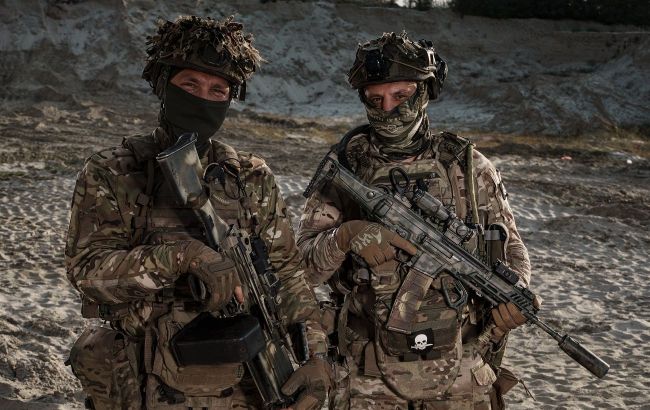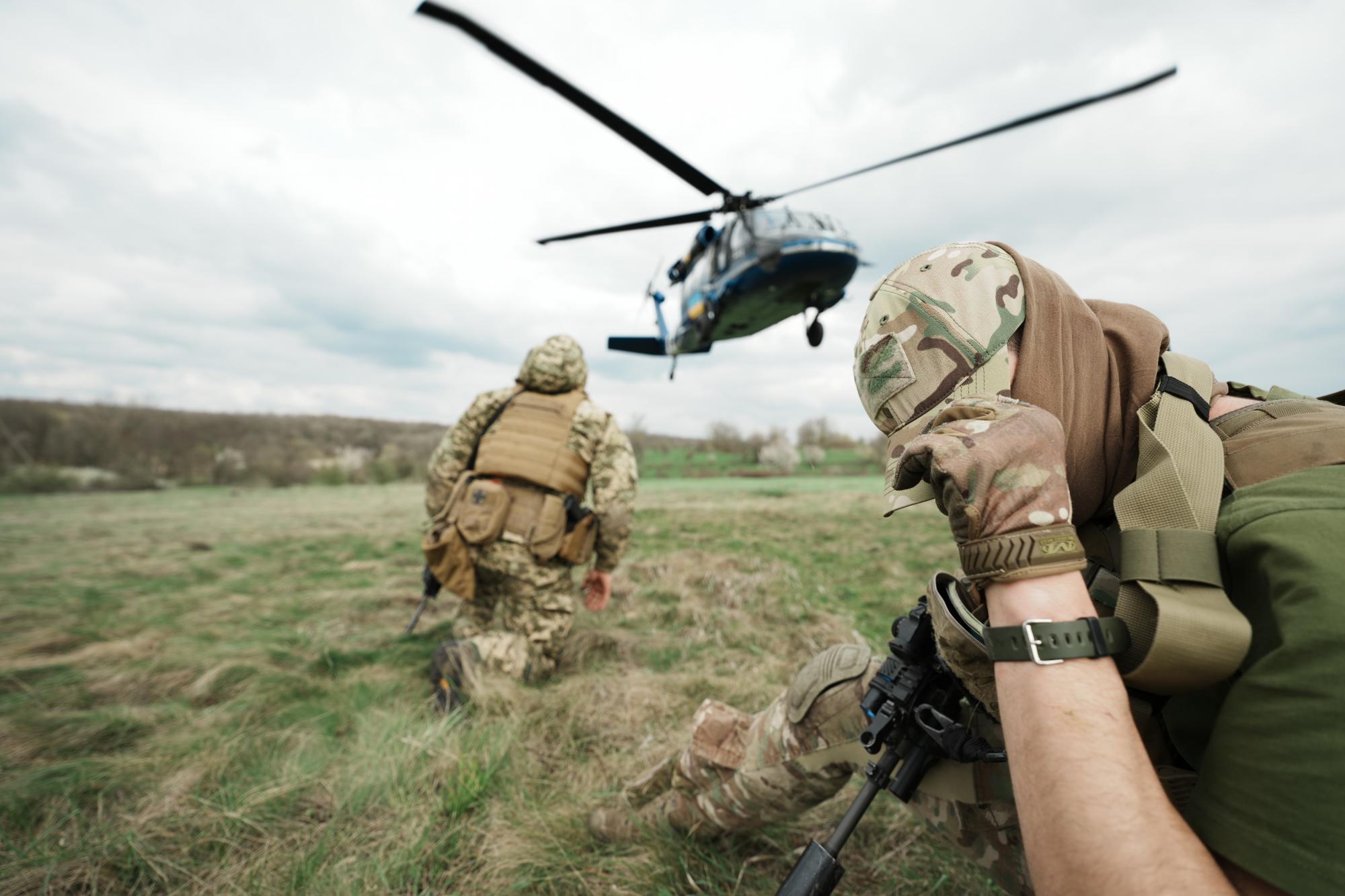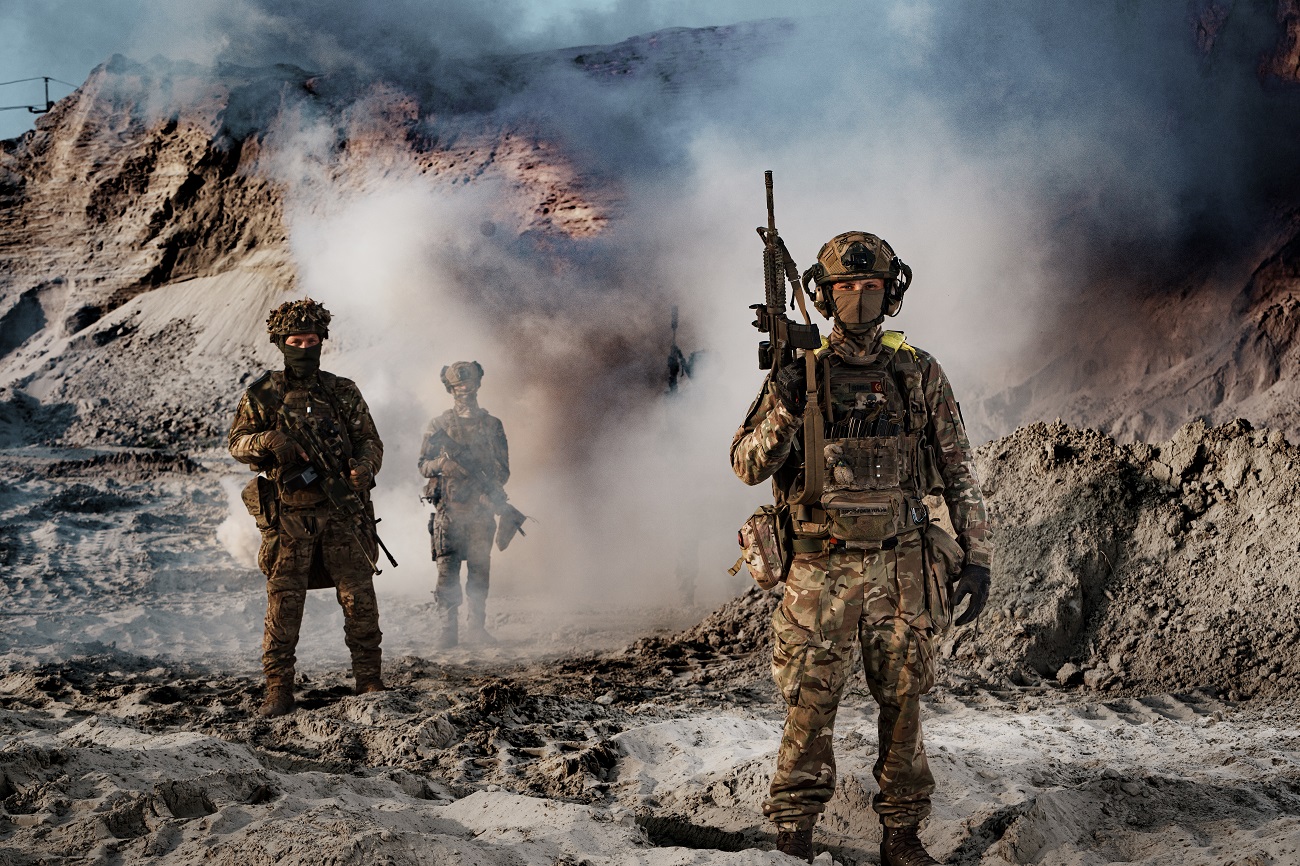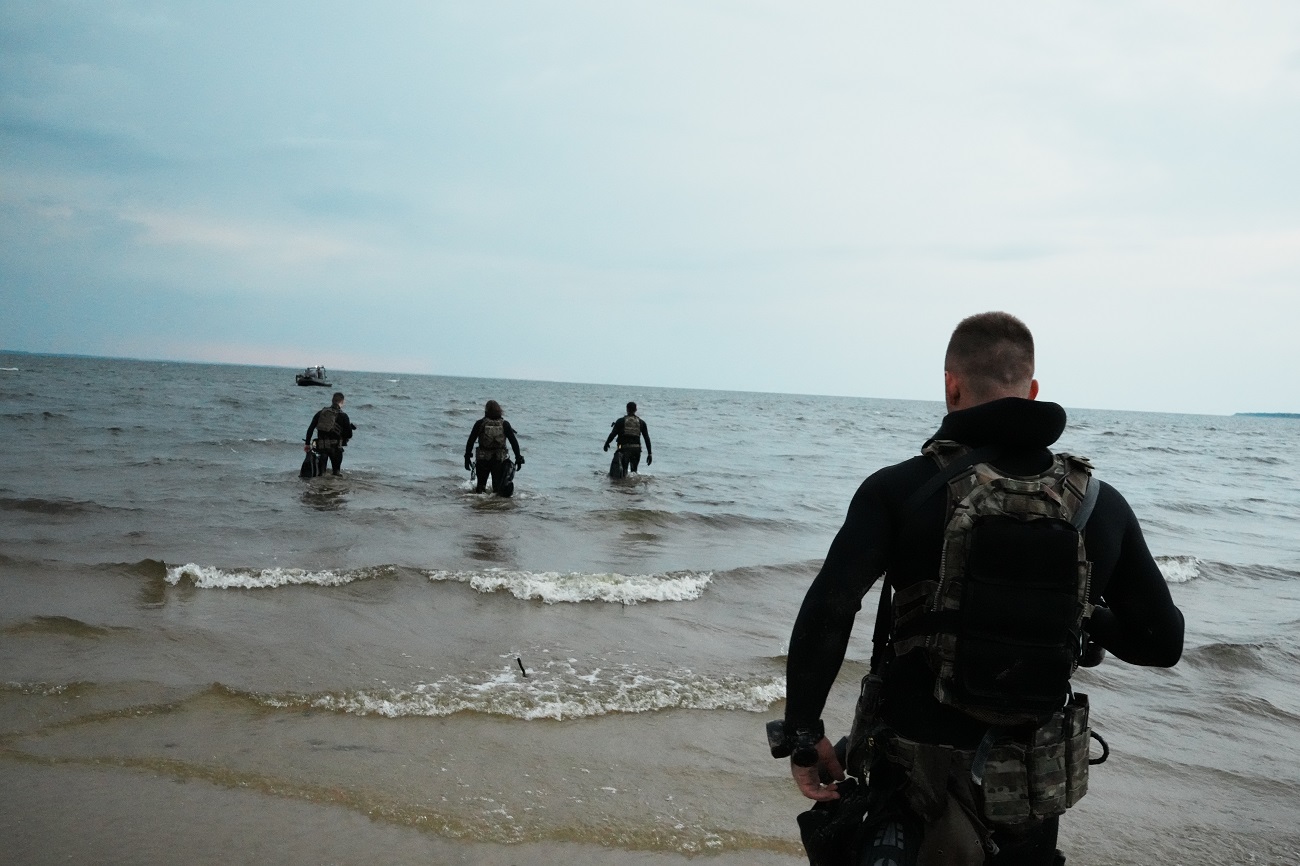600 km behind enemy lines: Inside the Ukrainian spy mission that wiped out Russian warplanes

During the full-scale war, the Defense Intelligence of the Ministry of Defense of Ukraine (HUR) carried out a unique operation — they managed to destroy a Tu-22M3 deep inside the Russian rear. Details of this and other daring operations, the specifics of planning and carrying out tasks — in an interview with the commander of one of the sabotage groups, Van Torn.
The war in Ukraine has repeatedly proven: courage, preparation and unconventional solutions can change the course of events at the front. In January 2024 the Defense Intelligence of Ukraine for the first time disclosed some details of the operation to destroy a Tu-22M3 deep in the enemy's rear.
We learned that to implement the plan, a group of intelligence officers under the command of HUR colonel Oleh Babiy had to walk more than 600 km on foot through enemy territory. Then, covering the withdrawal of his comrades, the commander heroically died.
The HUR says: similar operations on the territory of the aggressor country are carried out constantly. Ukrainian military intelligence sabotage groups have dozens of such successful operations to their credit. The spectrum of targets is wide: from strategic aviation to objects of military and strategic infrastructure.
RBC-Ukraine spoke with the commander of one such group under the call sign Van Torn. We talked about preparation for operations, the specifics of the work of sabotage groups and some personal points.
An interesting detail: Van Torn is a co-author of a book dedicated to the feat of Oleh Babiy's group. 2024 kilometers: With native stars through enemy nights will be published this fall, and all proceeds will go to support subunits that operate deep in enemy rear. Pre-orders are available via the link.
About the team, planning operations and what is in an intelligence officer's bag
– How is the team that will carry out a difficult task formed? Is it voluntary or by order? Is there competition among fighters over who will go on which mission?
– For the performance of these tasks we are interested only in volunteers! If we talk about a specific group, then psychologists are indispensable there. Because people must live together for quite a long period. Therefore there must be compatibility. Like with cosmonauts. As for who goes where — we are military people, so who and where will go — that is already by the order of the leadership.
– What is in an intelligence officer's kit? If you set out on a long-term operation, a long-distance trip into the enemy's rear.
– That reminded me of how we once gave one of the young fighters the call sign Briefcase. He called his backpack that. Since 2022 we have returned to the authentic name "naplichnyk". But by army clothing standards it is still a backpack.
First of all, we put what we use to harm the enemy: special means of destruction. And the rest is what contributes to accomplishing tasks and allows you to perform them for a long time. A sleeping bag, a foam mat, spare clothes, water, food and so on.
Exclusive footage from the operation of HUR fighters in the enemy's rear, when they managed to penetrate 600 kilometers into the depth of Russia and destroy a Tu-22M3 (provided to RBC-Ukraine)
– During such operations do you take Ukrainian documents with you, or fake Russian ones? What clothing do you choose: civilian or perhaps Russian army uniform?
– It's not a question of documents or clothing. The main thing is to be able to remain unnoticed. And we can do that.
– Do you tell your relatives where you are going, or do you have to make up some stories?
– The topic of task performance is taboo for those around us.
– Should intelligence officers who carry out such operations start relationships and families, given that every operation is very dangerous?
– Unfortunately, at the moment there are no safe places in our country. Even Zakarpattia was hit recently. The question is only the level of danger. Everything is relative.
The operations we participate in are indeed not simple, to put it mildly. But most of us have families and continue to defend the Motherland. A kind of work-life balance.

HUR says that such operations are carried out on a regular basis on Russian territory (photo: provided to RBC-Ukraine)
On penetrating enemy territory, distances and risks
– How do you manage to penetrate enemy territory and not get caught there? Do you select people for such operations who have a Russian accent typical for the area or other corresponding traits?
– I wouldn't want to detail methods and techniques that much. But I can say that we are constantly looking for different opportunities and approaches. That's precisely the work of an intelligence operative: to penetrate and not get caught. The main thing is the ability to remain unnoticed.
– Did you know in advance the distance you would have to cover? Did you believe it was actually achievable?
– It all starts with preparation. It's there that you learn what you are capable of. So by the time you carry out the mission you no longer have doubts about your abilities.
Regarding awareness of the distance — if you know the target, and this, oddly enough, is an important condition for successful mission, then you must know everything about it. Including the straight-line distance to it and the distance along the route.
– How many days did it take to cover the distance? Was there time to rest and sleep, to eat? How did you manage to replenish provisions?
– The mission lasted more than a month. You may not want to eat or sleep — but you must. Otherwise you won't make it. As for provisions, we carry everything on ourselves.
– Were you aware that this operation would go down in history as one of the most audacious?
– We were simply doing what we had to do. Reflection comes later, after return.
To reach deep into the rear. On the hardest moments and plan B
– What were the hardest moments you had to endure while carrying out the tasks?
– When I lost a chocolate bar. I was very sorry. But the main thing — I left tracks.
– Were there situations when you had to improvise and deviate from the plan?
– Life is not a template, that's what makes it interesting. Such situations happen. You need to be ready for that and you need to do it. The main thing is not to exceed the limits set by the leadership in advance.

Only volunteers penetrate deep into enemy rear (photo: provided to RBC-Ukraine)
– How ready are the Russians for Ukrainian reconnaissance units to operate in their deep rear? Did you feel they did not expect such deep strikes on their territory at all?
– We have a very treacherous and audacious enemy, so we must always be ready for the hardest situations. They probably think the same.
– How did the enemy react after the strike? Were there attempts at "cleansings" in the area of your operation?
– Yes, of course. Therefore the ability to remain unnoticed is paramount.
– Was there a danger of being taken prisoner during the exit from the operation?
– There is always risk. Here your skills and abilities matter. And a bit of luck.
– When you went on this 600 km operation into the enemy rear, was there a feeling it might be a one-way road?
– If you go in with that mindset, you'll never get there. We were confident of success because we were doing an extremely important task — and achieved it.
– What was your personal plan B if the operation failed?
– What you are asking about is called an evasion plan. Those and alternative mission-execution plans we always have.
– Did you think that destroying those planes could save hundreds of Ukrainian lives, but at the cost of your own?
– We all perfectly understood the risks, but it was worth it.
– What was the greatest reward for you after the operation?
– When you set foot on native soil upon return. It's a very specific feeling, which I don't know how to describe or compare. There is a whole spectrum of sensations and emotions there.

Thanks to such operations the enemy understands that its rear can no longer be a safe place (photo: provided to RBC-Ukraine)
– Does every operation change you personally? What traits does it shape?
– It's all about experience. Any experience changes you: your perception, way of thinking, your assessments of situations or the surrounding world. You literally change with every step.
For Russia, this operation became a serious blow not only to aviation but also to reputation: it turned out that even deep inside the country their army is not protected from Ukrainian forces. It matters not only in terms of destroying equipment. It is a demonstration of the Ukrainian army's ability to operate at any location. The enemy now understands that its rear is not a safe place.
Destroying planes at the airfield is also a serious blow to the morale of Russian troops. After all, each such episode proves: Ukrainians are able to reach even those places Moscow considered impossible to penetrate.
Active action units are the elite of the Defense Intelligence of Ukraine, its glory and pride. They take direct part in combat operations and conduct reconnaissance and sabotage activities in the enemy rear. Among the members of these units one can find virtually any combat specialty: riflemen, sappers, grenade launchers, snipers, machine gunners, etc.
To become part of a team where initiative is encouraged and fighters receive high pay, one can fill out a form on the HUR MoD website.

